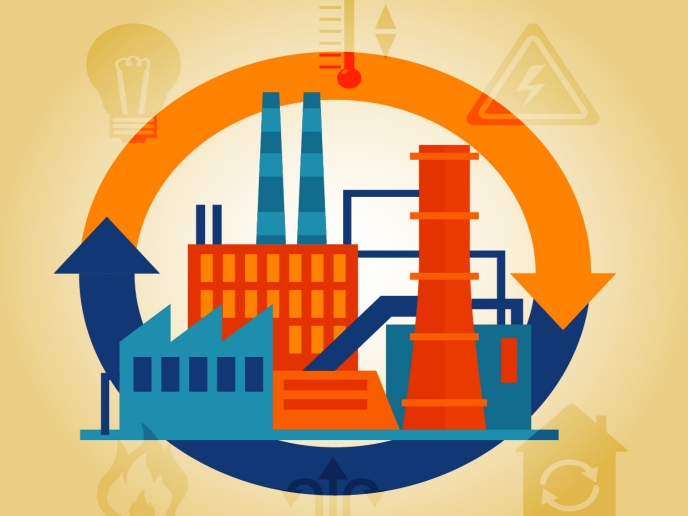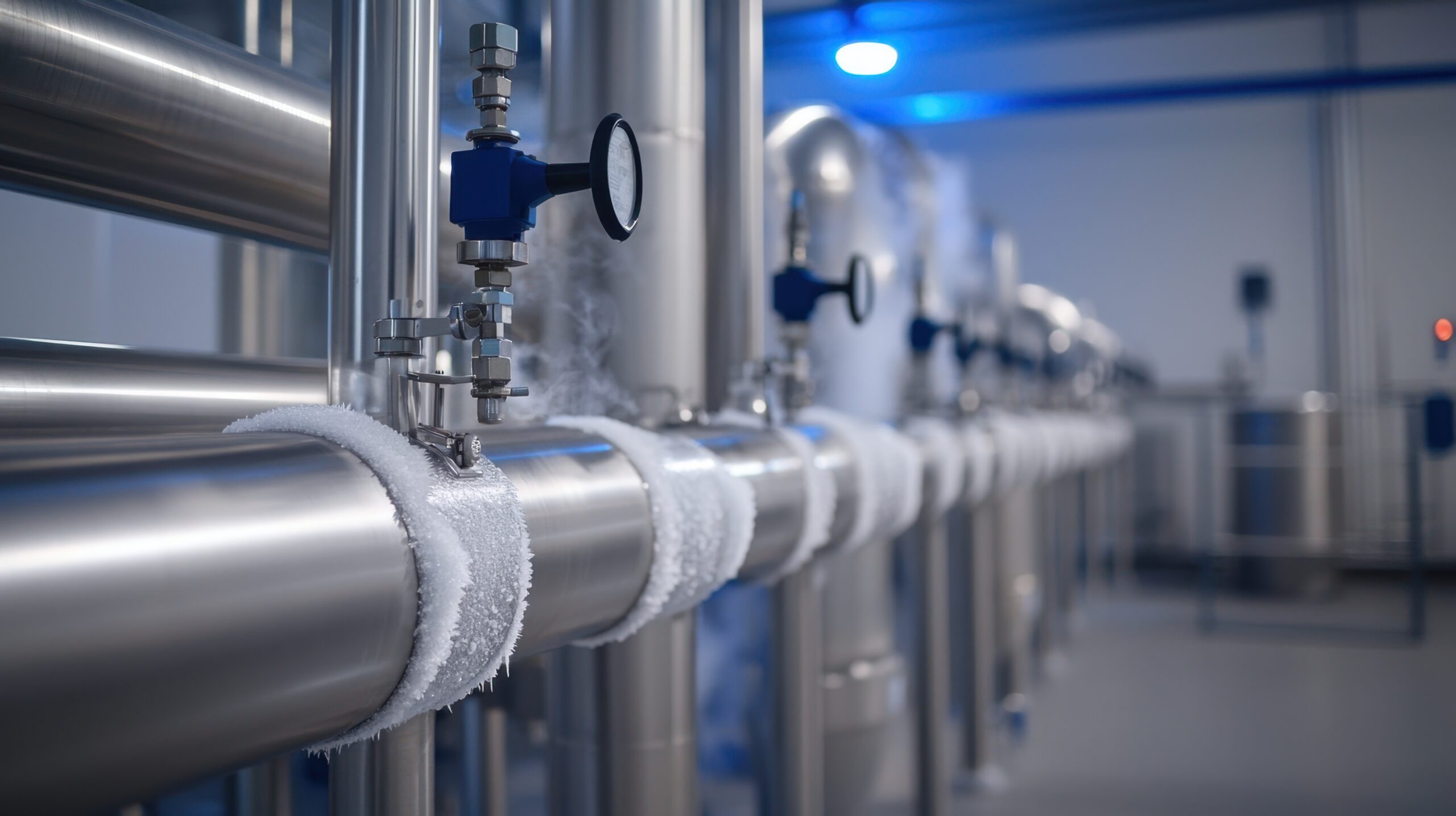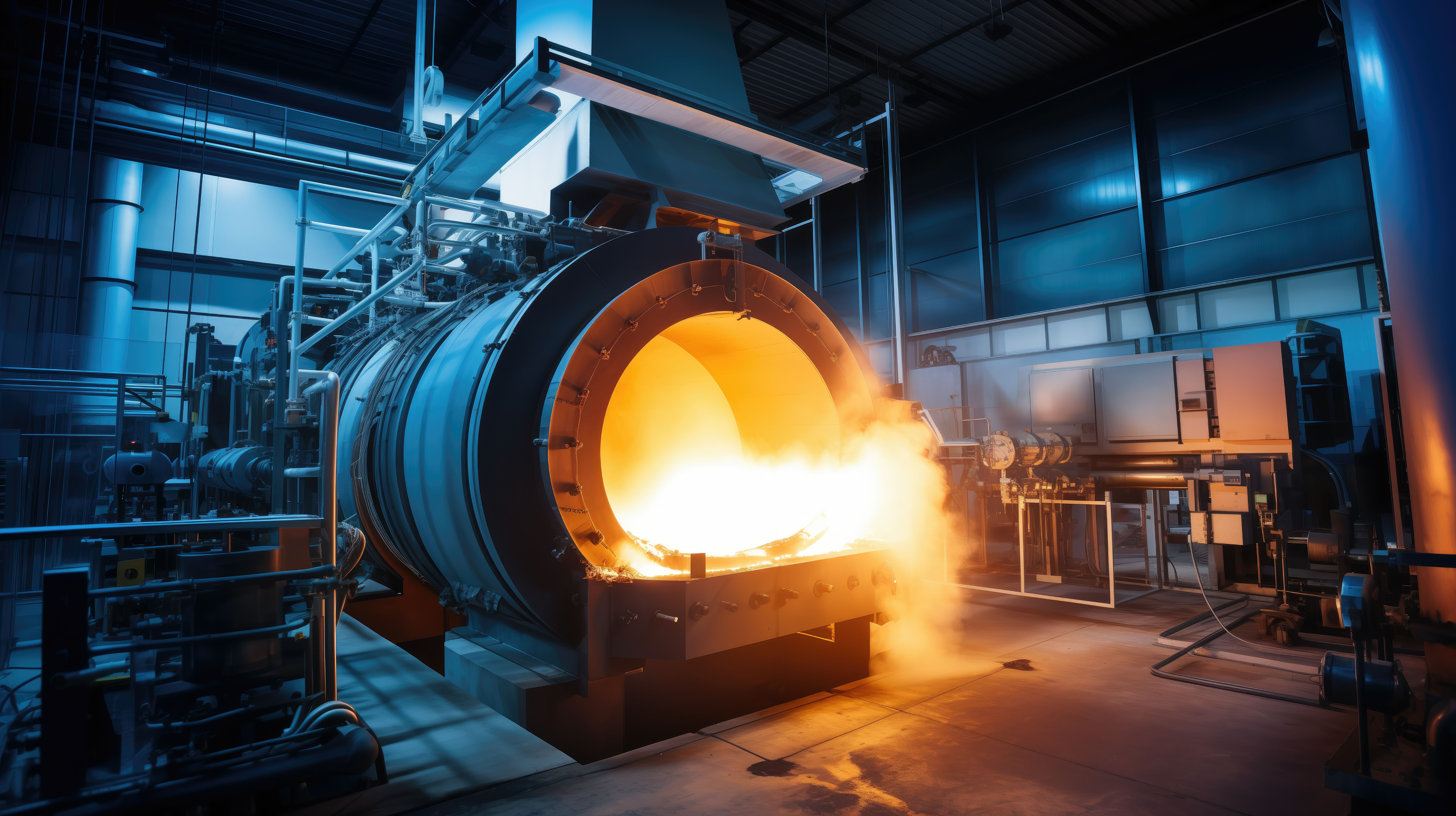
Projet REHEAT
Une conversion efficace de la chaleur résiduelle industrielle en chaleur à haute température avec pompes à chaleur à fluide de travail réactif

Projet coordonné par le CNRS
Durée de 4,5 ans
3 millions d’euros de budget
Thèses
Objectifs scientifiques
L’objectif du projet REHEAT est de contribuer à la décarbonisation de l’industrie grâce au développement d’une nouvelle pompe à chaleur à compression de vapeur, permettant la récupération de la chaleur résiduelle industrielle disponible et sa conversion efficace en chaleur ayant un niveau de température adapté aux processus industriels, c’est-à-dire jusqu’à 200°C. La nouveauté de la pompe à chaleur proposée réside dans le fait qu’elle fonctionnera avec des fluides de travail qui sont le siège d’une réaction réversible évoluant le long des transformations thermodynamiques se produisant dans chacune de ses opérations unitaires. En effet, ces réactions étant extrêmement rapides dans les deux sens, elles évoluent en fonction de l’équilibre chimique. Plus précisément, l’équipe du projet REHEAT propose d’étudier deux fluides, à savoir l’acide formique et l’acide acétique. Ces acides carboxyliques sont capables de se dimériser ou, au contraire, de se monomériser, dans leurs phases vapeur et liquide, par la formation ou la rupture de liaisons hydrogène.
Les améliorations attendues introduites par la technologie développée, et qui devront être validées dans le cadre du projet REHEAT, concernent :
la possibilité d’atteindre des températures plus élevées (150 à 200 °C) par rapport aux pompes à chaleur haute température les plus avancées actuellement le rendement, qui est estimé à 70 % — contre 40 à 50 % actuellement — de l’efficacité de Carnot.
Une approche modélisatrice et expérimentale organisée autour des quatre axes
REHEAT vise à prouver ces potentiels, en proposant une approche modélisatrice et expérimentale organisée autour des quatre axes principaux suivants :
1) Étude théorique de l’efficacité et des conditions de fonctionnement de différentes applications de pompes à chaleur à haute température pour la récupération de la chaleur perdue, fonctionnant avec des acides carboxyliques comme fluides de travail réactifs, et comparaison avec un fonctionnement typique avec des fluides inertes.
2) Mesure et modélisation de l’équilibre des phases, des propriétés volumétriques et calorimétriques des acides carboxyliques et de leur mélange avec le dioxyde de carbone et l’impureté de l’eau.
3) Étude expérimentale de la compatibilité des acides carboxyliques avec les matériaux potentiellement utilisés dans les pompes à chaleur à haute température, en considérant différents niveaux de pureté commerciale des acides formique et acétique.
4) Conception, réalisation et test d’un prototype TRL4-HP fonctionnant entre 80°C et 150°C, pour valider les performances et le fonctionnement de la technologie développée.
Le consortium

Certains des outils nécessaires à REHEAT, comme le programme de calcul des propriétés thermodynamiques, sont développés dans un projet connexe financé par l’ERC, le projet REACHER. Le consortium est actuellement formé par le CNRS-LRGP (le coordinateur), et 5 partenaires : Mines Paris PSL- CEEP, responsable des mesures d’équilibre de phase des acides formique et acétique, et de leur mélange avec le CO2 ; UCA-ICCF, responsable des mesures calorimétriques des acides formique et acétique, et de leur mélange avec le CO2 ; UL-IJL, responsable de l’analyse de la compatibilité des matériaux des pompes à chaleur – comportement à la corrosion avec les acides carboxyliques ; UL-LIEC, responsable de l’analyse par spectroscopie Raman réalisée dans le cadre du projet, UGE-MCD responsable des développements spectroscopiques et de l’instrumentation. Le coordinateur est responsable des études thermodynamiques théoriques des pompes à chaleur, de la conception, de la réalisation et de la campagne d’essais menée sur le prototype, et participera à la modélisation des données thermodynamiques expérimentales obtenues par le CEEP et à la réalisation et aux essais du pilote par l’ICCF.


